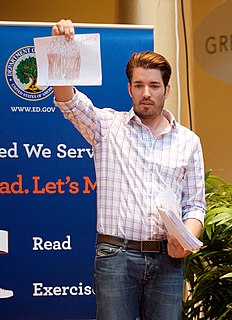A Quote by Jeffrey Pfeffer
Most organisations say they want creativity, but really they do not.
Quote Topics
Related Quotes
At the core, there is one simple, overarching reason why so many people remain unsatisfied in their work and why most organisations fail to draw out the greatest talent, ingenuity, and creativity of their people and never become truly great, enduring organisations. It stems from an incomplete paradigm of who we are - our fundamental view of human nature. The fundamental reality is, human beings are not things needing to be motivated and controlled; they are four-dimensional - body, mind, heart, and spirit.
One of the things meditation gives you is creativity because creativity really comes from the subconscious brain - intuition, imagination - so it's not like you can go there and say, I'm going to go be creative now. Maybe you can, but the real way you get creativity is, you know, you're taking a hot shower and great ideas come to you from the subconscious. Essentially, meditation opens a pipeline between the conscious and the subconscious.
I can't say that I am a DVD junkie. I see most films that I want to see in the theater, and so most of my DVD-watching is catching up with the occasional movies that I missed or revisiting a film that I really care about, in which case I really want the extra channels, because it's a movie that I already love, and I want to know more about it.
I've always really been interested in the Pygmalion myth and both what it has to say about creativity and what it has to say about relationships between men and women. I'd been thinking about what I would want to do with that if I was going to write on that theme, and one morning I woke up and Calvin and Ruby Sparks were in my head.
When I'm writing, I really want to satisfy myself. I've got a story that I am working on and struggling with, and I want to tell it the most effective way I can. That's really what I struggle with. And the thought of who may be reading it may be there somewhere in the back of my mind - I'll never say it's not there because I don't know - but it's not really what I'm thinking about.



































